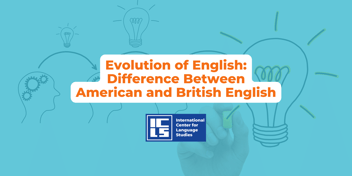English Words From Other Languages — You Didn't Know There Are So Many

If there’s one thing we know for sure about the English language, it’s that it has borrowed heavily and continues to do so from various languages across the world. All languages evolve and English is no exception. Modern English bears very little resemblance to Old English. Just try reading some Old English manuscripts if in doubt. Good luck with that! Nevertheless, it’s interesting to look at modern English words borrowed from other languages. Research shows us that roughly 30% of the English language have either French or Latin origins.
The English language, as spoken today, has borrowed heavily from many languages. Borrowed words, known as ‘loan words’, are part of everyday speech in the English language. Let’s take a look at a few examples:
Have you ever experienced that strange sense known as déjà vu? Most of us have at some stage in our lives. It’s the feeling of having already experienced what you’re experiencing in the present. The expression comes directly from the French, meaning ‘already seen.’ You’ve probably been invited to a party or celebration and seen the letters RSVP at the bottom. You know perfectly well that RSVP is a request for you to reply to the invite, but perhaps be less conscious that it’s loaned from the French ‘Repondez, s’il vous plaît’, meaning ‘please respond.’ Have you ever worn a beret? Drunk an aperitif? Been to the ballet? Taken a detour? Committed a faux-pas? Eaten a gateaux? Stayed in a hotel? Been shown a menu? Had a Rendez-vous with someone? Watched Television? Or sat beneath a parasol? We’re willing to bet you have, and these are just a handful of hundreds and hundreds of French loan words that have become part of everyday speech in English.
Germany has been very generous in loaning words to the English language too. For example: Kindergarten, wunderkind, angst, zeitgeist, poltergeist, kitsch, doppelganger, wanderlust, schadenfreude, diesel, ersatz, kaput, (and many, many more) all come directly from the German language. Indeed, Germany has a word in linguistics for the proliferation of its language across the world: Germanism. And ponder for a moment, where do you suppose that most staple of American foods the Hamburger originated? If you’re thinking, maybe Hamburg in Germany, odds on you’re right!
Many other words that form part and parcel of everyday speech also originated from outside the US or England. Anonymous come from the Greek Anōnumo; Algebra originated in ancient Babylonia and Egypt, who developed the positional number system that’s so familiar in schools across the world. Loot is a word of Hindi origin; Safari originates from the Arabic language, as does kismet; cigar is of Spanish origin; cartoon is derived from the Italian word carton, which described a comical picture drawn on hard paper; cookie is from the Dutch word koekie; Ketchup, believe it or not, originated in China; massage comes from the Portuguese.
One of the best stories about the origins of a loan word used in English happened in 2002, when the former President George W Bush was meeting his counterparts, French President Chirac and British Prime Minister, Tony Blair. According to British press sources, President Bush exclaimed “the problem with the French is they don’t have a word for entrepreneur.” Whether the story is true or apocryphal (a word derived from the Greek, incidentally) is in doubt. The glorious irony, if true, being that entrepreneur is an entirely unaltered French word!
At ICLS, we offer English classes for learners across the globe, including a number of English classes in washington dc, as well as business english and english pronunciation classes both in-person and online.


